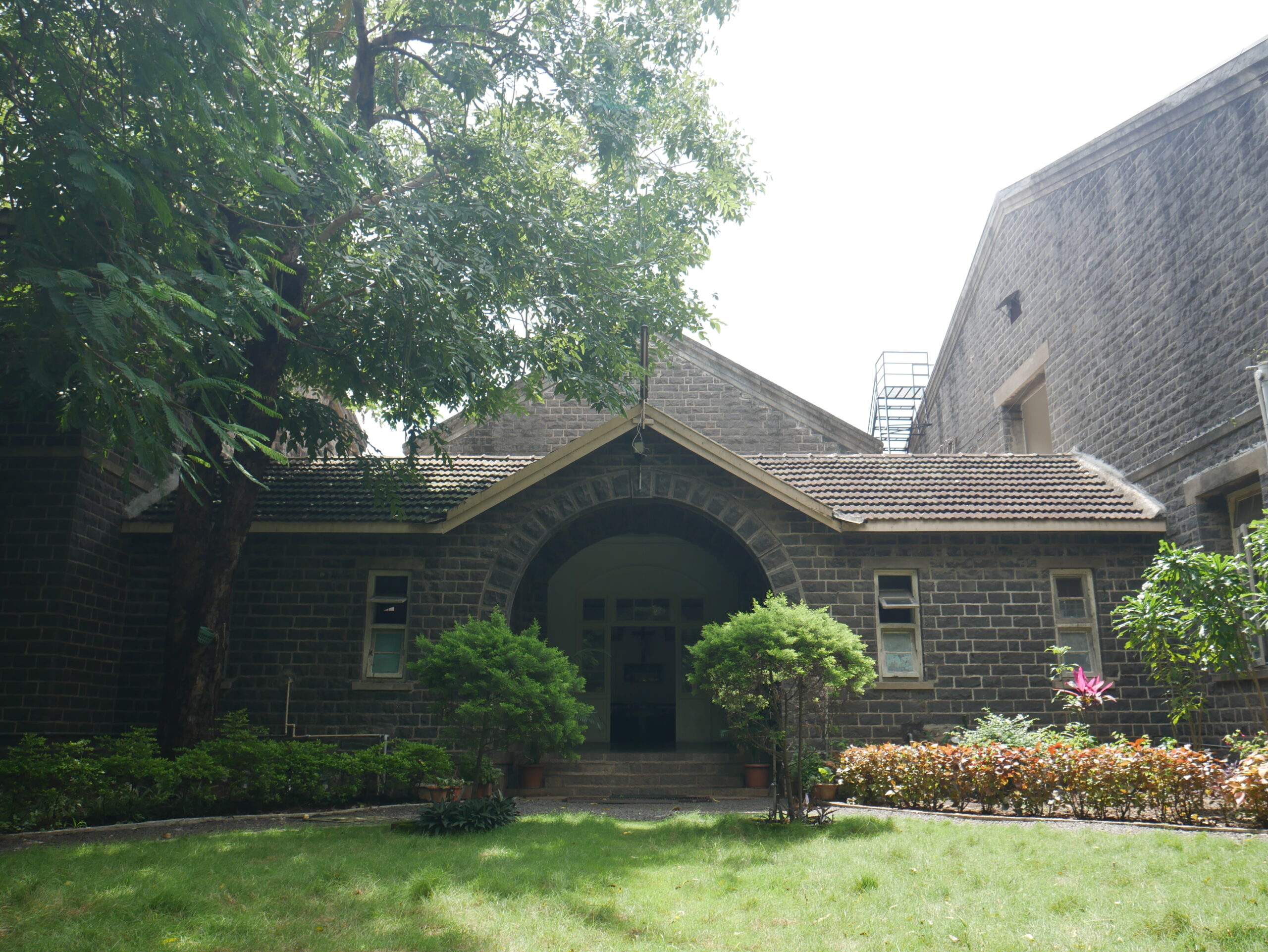Vision and Mission
A Jesuit community is identified by its mission. The mission of the Jesuit community at De Nobili College, centers on formation which is “geared to the apostolic aim of the Society of Jesus” (CN 59#1).
At De Nobili College (DNC), we are dedicated to the holistic formation of young Jesuits, in line with the apostolic aim of the Society of Jesus. Through prayer, Eucharistic celebration, academic study and committed apostolic ministries—especially serving the marginalized—we focus on spiritual, human, intellectual, and pastoral development. Over two to three years, we prepare our scholastics to joyfully and fruitfully engage in their ministries, ready to serve the community and fulfill their apostolic calling.
At De Nobili College (DNC), we are committed to nurturing and preparing young Jesuits for the apostolic charism of the Society of Jesus. Our vision is to develop well-rounded individuals who are ready to serve in diverse ministries, including retreats, teaching, research, science, and social work, in response to the needs of the Church.
History
The history of De Nobili College began in 1935 when the Jesuit Superiors of the eleven Missions of India and Ceylon convened in Calcutta to discuss the establishment of a new Theologate. St. Mary’s College at Kurseong was deemed unsuitable due to its cold climate and inability to accommodate the increasing number of Jesuit scholastics. Rev. Fr. R. Rauw SJ, the Superior of the Poona Mission, was tasked with this monumental job.
Finding a suitable location for the new Theologate proved challenging for Fr. Rauw SJ. Although His Grace Archbishop Doering, the Bishop of Poona, was willing to sell a large plot off Ahmednagar Road, the area was barren and distant from Poona’s main schools and colleges. Fr. Rauw SJ made eight other unsuccessful attempts to find a plot west of Poona, even considering purchasing a haunted house. Finally, in 1937, St. Vincent’s High School in the Poona Cantonment Area generously hosted the first batch of 19 theologians, comprising eight Indians and eleven Europeans and Americans.
Fr. Joseph Neuner SJ, Fr. Staffner SJ, Fr. Hass SJ, and Fr. Loewenstein SJ, along with Br. Herbert SJ and Br. Neukamm SJ, took on the responsibility of this new venture. The outbreak of World War II in 1939 resulted in the internment of many German Poona Mission Fathers, severely impacting the College. Despite this setback, the College persevered, thanks to the dedication of the scholastics and the support from other fathers from across the country and abroad.
St. Vincent’s was only a temporary location for DNC. After failing to find another suitable place, Fr. Rauw SJ returned to Bishop Doering in November 1941 and agreed to purchase his land off Nagar Road for the new DNC building. However, the authorities imposed a condition: the new building had to be available for military use if needed. This condition was accepted, and Bishop Doering laid the cornerstone of the new De Nobili building on February 2, 1942, marking the birth of DNC as we know it today.
In 1944, as the college building neared completion, the British-Indian army took it over for officers’ training. Compounding the difficulties, World War II restricted funds from Germany, leading to the temporary closure of DNC for three years until 1947. The independence of India in 1947 revitalized DNC. The Indian army no longer required the building, returning it to the Society of Jesus. In January 1948, De Nobili College reopened to its first batch of theologians. DNC was declared a “Common House” for the missions of Ahmedabad, Bombay, Poona, and Goa, and the Theology library was moved from St. Vincent’s.
Between 1950 and 1951, the Superior General of the Society of Jesus decided to add a new philosophy wing to the existing DNC building. Around this time, the Papal Seminary at Kandy was also moved to Poona. Fr. Pius Geisel SJ oversaw the construction of new buildings, completed by 1952. By May 1953, a first floor was added to the original 1944 building.
Over time, additional facilities such as basketball and volleyball courts, a grotto, and a place for the Way of the Cross were established. In the 1940s, De Nobili’s land was almost a barren desert. Over the years, many Jesuits, staff, and students worked tirelessly to transform the campus into the green and beautiful space it is today.
Jesuit Tradition
The Society of Jesus was founded in 1540 by Saint Ignatius Loyola and his companions. The Jesuit mission is a mission of reconciliation, working so that humans can be reconciled with God, with themselves, with each other and with God’s creation.
The Society of Jesus has a rich tradition of missionary work, education, and scholarship, serving the Church across Europe, Asia, Africa, and the Americas. Pioneers like Robert Bellarmine, Peter Canisius, and Francis Xavier spearheaded the Catholic Reformation and brought the Gospel to the ends of the earth. Courageous missionaries, including Francis Xavier, de Nobili, Peter Claver, and others, spread the Gospel worldwide, embodying the Jesuit commitment to serve wherever needed.
From its foundation, the Society recognized the importance of education, establishing schools that provided moral and religious instruction, making devotional life accessible, and teaching the Gospel message of service to others. Jesuits have been deeply involved in scholarship, science, and exploration. By 1750, Jesuit astronomers ran numerous observatories, and Jesuit scientists contributed significantly to advancements in various fields, including the development of the Gregorian Calendar by Christopher Clavius.
In 1773, Pope Clement XIV suppressed the Society, but it was restored in 1814 by Pope Pius VII. Despite this setback, the Jesuits resumed their educational and missionary work with renewed vigour, receiving numerous requests to establish new colleges. Over the past 200 years, the Society has grown and expanded its educational, intellectual, pastoral, and missionary endeavours. Today, over 16,000 Jesuits from 112 countries continue to serve globally, transcending geographical and cultural boundaries. United in diversity and with a global perspective, Jesuits are committed to working with Christ for the glory of God. Jerome Nadal’s words, “The world is our house,” capture the Jesuit spirit of embracing the world outside churches and monasteries, engaging with the multitudes of God’s people and the expanse of human cultures.


Leave a Reply